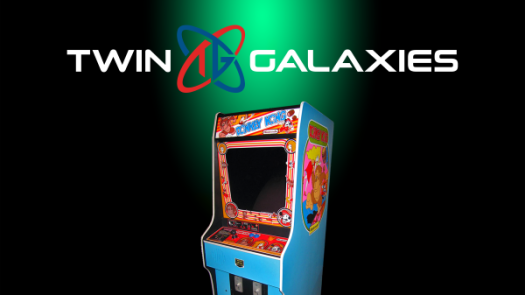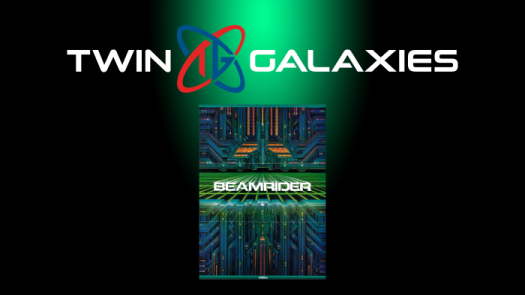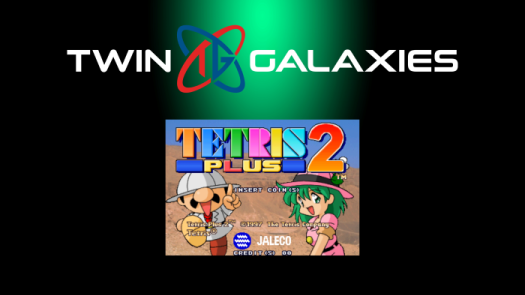While Fortnite seems to be the main game on a lot of minds, there is another title steadily building in popularity, especially in Asia. Arena of Valor is a mobile MOBA that puts five players against each other in a traditional MOBA fashion, similar to League of Legends and is even owned by the same company Tencent. The main difference is that portability of it being on mobile devices, a completely new cast of characters that also has DC comics heroes and villains, and the title coming to Switch which is a hungry market with a current absence of the MOBA genre.
As the matches for the Arena of Valor World Cup start this week, we wanted to sit down to discuss the realm of esports with Ramon Hermann, who is the Director of eSports at Tencent.
TG: When setting up the World Cup, what are you thinking about when it comes to value for the viewer?
Hermann: "Essentially our approach has been to create a really high quality broadcast and specifically to your question about how we help the viewer, the focus has been in making sure that we have talented casters that are very familiar with the game and can help tell the story of what happens in a match.
Having worked in esports for many years, nothing helps me understand what happens in a match more than a commentator who can really provide the narrative of what’s going on in the game.
I’m German and I’m a soccer fan, but even for me to watch a soccer match in the World Cup, to really understand the minute details and the specifics of what’s actually happening, having an experienced commentator is tremendously helpful. I think this is even more true for a game like Arena of Valor, where we sometimes have both teams meet up in one spot of the map and a total of ten characters on the screen that are all fighting and flinging spells at each other, a lot can be happening and for someone to follow anything, especially if they’re not super game savvy, can be challenging.
So our focus has been to get the right talent on board that can help convey that story. We actually ran a caster school program to help get talent onboard and give them an opportunity to familiarize themselves with the game and to make sure that they’re really the experts in helping convey what’s happening.
I think that casters, more than any technical solution, can help convey what’s happening in a match. Obviously, we have certain overlays where we keep track of all the relevant information, but the key aspect for us is to make sure that we have the right talent in our casters."
TG: Conversely, what is being done for players both physically at the match and those at home who are already familiar with the game?
Hermann: "We’ve tried to provide a lot of context for what the World Cup is; our focus has been very local in that regard. When we set up the Regional Series that allowed teams to qualify (so for North America that was the Valor series) We try to explain how teams got to the World Cup, who they are. After we had the playoffs at E3, we talked a little bit more about the specific teams that qualified for the World Cup in each of those regions and the specific players in those teams so that people actually know who is at the World Cup and why it matters."
TG: What is the most exciting part of the World Cup?
Hermann: "For me it’s that A) we have a World Cup B) that it’s in Los Angeles C) the game in North America only launched in December of 2017. For us to have an event of this size and magnitude is something I’m super pumped about.
It’s looking at the timeline of getting the game up, the logistics of the first season, not just from a production point of view, but also spinning up a competitive ecosystem that actually allows us to identify the right players, the right teams, and to get them to play and qualify for this event and to have this level of play.
Keep in mind that the North American and European teams are going to face off against teams from Asia, where the game has been out for a much longer period of time. So trying to get those teams as much of a level playing field as we could, that’s been one of the biggest challenges and also one of the things that we’re most excited about.
Just prior to the World Cup, right after the E3 Playoffs, we sent the North American and European qualifying teams to Thailand for a two week boot camp where they got to play scrims against all the other teams that qualified. That was a major effort on our end, to make sure that they were exposed to the meta that’s being played in those regions and do our best to acquaint them with what’s happening on those teams.
When launching a game, the question comes up with how do we set up a competitive environment? At Tier 1, the very top of the pyramid in terms of competition, we had to figure out how to get teams to qualify for the World Cup and we had to make certain that there is a path for players that are passionate about the game to have a chance to compete.
These efforts resulted in us finding a league structure that’s been a little unique. For our regular season, every week, the bottom two teams of that week went into relegation against teams that went through an open qualifier to move into that structure. What that allowed us to do was it let teams rise to the top halfway through the season. We didn’t lock the teams in at day one, because we didn’t know after the initial qualifier if we really had identified the strongest teams.
It was interesting to see, because the first couple of weeks of that season, there was a lot of change in regards to what teams at the bottom half of the ladder would move into our competition. Then towards the end of the season, that really started to solidify at that made us more confident that we had the strongest teams with the strongest players. Being able to manage that was really interesting for us to do."
TG: So when these teams get up on stage for the World Cup, this isn’t the first time they’ve played against each other. There is of course a distinct advantage for those regions that have been playing the game longer. That’s an interesting dynamic.
Hermann: "Being aware of that, we tried to figure out the best possible way for us to level the playing field as much as we could. So getting them to Thailand, putting them in the same room, we felt that was the best step for us to expose those teams to how the game is being played in Asia and allow them to play against those teams. I don’t know if the top Asia teams disclosed all of their secret tactics, but I think overall it was definitely a helpful experience for those players to be exposed to it."
TG: Which team would you consider to be the biggest underdog at the World Cup?
Hermann: "That’s always really tough to determine, but just based on the length of time these teams have spent with Arena of Valor, I think the North American team is the one that faces the toughest uphill battle here."
TG: Where do you think the next stride in esports will come from? Is it the particular presentation of an event? The way a game is scored? A particular game in general? What do you think will push esports into mainstream?
Hermann: "I think when we look at the premiere events, the Super Bowls of esports, those are already very much on par with traditional sports events. Big esports events have no problem filling the Staples Center or the big venues in Europe or Asia. That is already happening.
The bigger question is how we build up the lower parts of the pyramid? What happens on the local level? How does that feed into the top level of play and how can we be more successful in going local? How do we take the virtual space of the internet, where teams are not anchored or rooted to any specific local community, and attach them to a geographical location?
These are questions that not just Tencent is thinking about; I think there are a lot of groups in the esports space that are trying to figure out how to tie in that local fanbase.
Having the World Cup is exciting in that way, because we have a North American team, which I assume a lot of our local audience will be supporting due to that immediate connection. If we can drill that down to more detailed level in the future, where we have city based teams or more regionally based teams, I think that’s what we still need to solve to some degree.
What is the Little League of esports? What does that look like?"
TG: It’s interesting that finding the local connection is on your radar. Is there a framework being created for Arena of Valor for local engagement?
Hermann: "This is where I feel that Arena of Valor, being a mobile game, has a bit of an edge on PC or console games. You don’t have to deal with the logistics of setting up the environment to play in. Most people carry their phone with them 24/7, so they bring their gaming platform with them. Us going hyperlocal is actually fairly easy.
We’re looking at a lot of different opportunities right now, whether that’s in the college or high school space, and we’re trying to figure out how to leverage our advantages and really capitalize on the accessibility that comes with mobile. I think one of the biggest question marks right now is, to what extent are people in the West aware of being able to get a core gaming experience on a mobile device?
To some degree, that’s a fairly recent development, because it's only really now that mobile hardware has caught up to a point where we can offer an experience that’s comparable to what a player might have on PC. Until a few years ago, mobile games just didn’t have the technological capability to offer the depth of gaming and complexity, but now they can.
It’s something that we’ve seen in a lot of Asian countries and South American countries where players who may not have grown up on PC or console see their phone as their main or possibly only gaming device and really embracing games like Arena of Valor. I think especially as the younger generation grows up, they might not be tethered to PC as much, so I think we’ll eventually start seeing more games like Arena of Valor."

TG: How do you think mobile esports from a presentation stance really differs from console and PC? What are some of the challenges involved with that?
Hermann: "One of the biggest challenges that we have so far encountered is, not so much running the event, but player behavior and audience behavior in regards to consuming content. Right now, we are pretty much following the template that’s been established for PC in terms of how we produce events, but more importantly how we broadcast events both in terms of our broadcasting platforms, but also the length of the match being broadcasted.
The reason I point this out is because a lot of PC and console games, the viewing experience is often a second-screen experience at home. You pull up your favorite viewing platform and lock into to whatever game you want watch, but that often sits there while you’re off doing other things. When something interesting happens, you might pay attention and watch.
For a game that exists on mobile, the equation probably needs to look a little different because the real estate on a phone screen is very limited. So it can’t really be a second viewing experience there, but I think at the same time a few people are willing to dedicate their phone for a few hours to watch an afternoon season for Arena of Valor or any other competitive experience.
Right now we’re sort of forcing people into a behavior that doesn’t feel natural to the mobile space. That’s where we are thinking of finding a smarter way of delivering that content in a way that’s a better fit for the mobile platform."
TG: How does Arena of Valor keep the community in mind when crafting events?
Hermann: "One of the most exciting things about running any live event is our ability to interface with live interaction and reaction from the audience. You’ll see very quickly what people like and what they don’t like and they’re usually not shy about telling you. I think that keeps us honest and grounded.
It’s a great way for me to keep in touch, I sometimes have very young players be very upfront about things they don’t like about the game and why we are not fixing it. It shows sometimes that people are so engaged with the game and they can be more knowledgeable about certain aspects of their favorite hero in the game than I even am or someone else on the team. Hearing that feedback is great.
We also have a dedicated community team that is active on Reddit and some of the other social platforms so we can have that exchange of feedback. This helps pay as much attention as we can to what players are concerned about or what they’re enjoying. We make that as much of a two-way conversation as we can."
TG: Any closing thoughts before our final question?
Hermann: "One of the main points I want to get across is that it is still early for us in esports as a mobile game. Nobody has really written the book on how esports mobile works yet, so we are here looking to do something fairly new for that space. We look at what has worked well for console and PC and what we need to do to make mobile successful.
It’s been exciting to see how Season 1 has played out. I think it’s fair to say that it has surpassed our expectations a little bit, especially running the playoffs as a live event at E3, which to me was the biggest risk that we took. I really wasn’t sure we would have interest there, but fortunately we had tremendous interest and for the finals it was standing room only. We’re really charting and pioneering that path right now, seeing what works, and learning from it.
We are actively working on what Season 2 will look like and we’re planning to launch that in the second half of this year. We’re only a couple weeks away from finalizing the details. Really it’s something we continue to invest in and we hope to get better at it and make sure that Arena of Valor as an esport is here to stay and something players can continue to be excited about.
I feel like the potential of mobile games is tremendous."

TG: Why should esports as a whole matter?
Hermann: "I think competing is in human nature, to see who is best at something. We see it in traditional sports and it is what most sports are built around. There’s something about competition, identifying what works best, and also learning right? It’s through competition that we get better and point out what we can improve on. It drives the overall level of play forward.
So in esports, we try to set up systems where we could give an opportunity to the most passionate players to compete against each other. That’s kind of what kicked all of this off. That’s how esports ended up with this tremendous viewership. Teams and players started to build a following that’s interested in seeing what people can do with certain characters, how they’ve mastered the mechanics of the games, the meta or strategy being used, or how communication while playing works.
If you’re into a game, seeing someone who is just really good at it is more than entertaining. It’s educational, allowing one to see things about a game that maybe wouldn’t have been seen through normal play.
If we make the comparison to traditional sports, I’m German and unfortunately the German soccer team didn’t make it far in the World Cup, but seeing what the best players in the world can do with the ball on the field is just fun to watch. I played a little soccer growing up, but I could never do what they do. To some degree, it’s the same in esports.
Esports are a joy to watch.
When you start taking esports into the live event space, I feel like that experience is bigger, becoming a social and emotional experience. Just like going to any big live event, like a concert or something, people don’t really go to concerts because of good audio quality, but what’s gained at a live concert is emotional fulfillment to some degree by sharing something with people of a shared interest. That also happens in esports.
It’s interesting for me to see, especially when considering how the North American audience typically reacts, regardless of the game, compared to Asian communities. The level of excitement and how involved Americans get for their teams is so many notches higher. I’ve been to stadiums in China where I didn’t understand a word of what was being said, but you can feel the energy of everyone around you, still making for a compelling experience.
At the end of the day, esports is a form of entertainment and video games have become one of the biggest entertainment platforms. Games have outgrown both movies and music. Esports is an extension, another way to engage with games and a way to be involved with a game when not actively playing it. From an external perspective, that’s the biggest reason to care."

The Arena of Valor World Cup will an event that could spark a ton of interest in the global playerbase. Once the game comes to Switch, that will bring another group to the game and if Tencent really find a way to help bolster and create incentive for more localized teams, the next evolution of esports could be created around this game. It would make sense that Tencent, the biggest name in multiplayer for a lot of reasons, would be the ones to develop those systems in a big way.
Regardless, the Arena of Valor World Cup will be interesting for anyone that have even a remote interest in esports as a genre of entertainment. That will be streamed on the official Arena of Valor Twitch channel.
For those looking to get started, check out this beginner’s guide. We’ve also taken a close look at one of the more interesting characters Arum for those looking for their first hero to pick up when they have enough points.







